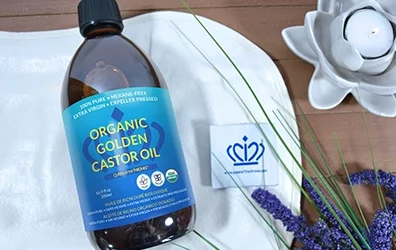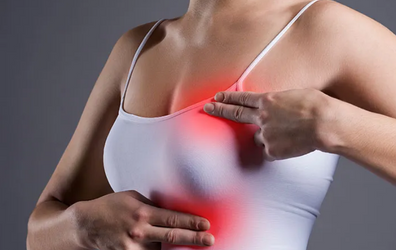Written by: Joanna Teljeur B.A.Medically reviewed by: Victoria Williams R.H.N. Est. reading time: 7 minutesThick and luscious, Castor Oil feels glorious on your skin, especially when you smooth it on your face before bed. It’s rich texture alone makes you feel...
Castor Oil Pack Articles
Castor Oil: Everything you need to know about its history, uses, and benefits
Written by: Joanna Teljeur M.A.Medically reviewed by: Victoria Williams R.H.N. Est. reading time: 7 minutesAre you seeing Castor Oil products everywhere and wondering if it’s just another fad? It seems like everyone has jumped on the Castor Oil bandwagon,...
Natural Solutions for Holistic Breast Wellness
Breasts define our femininity in many ways, we feel sexy because of them and un-sexy in spite of them.
6 Scientifically Backed Ways To Support Your Breast
Would you love to know how you can use Castor Oil to support your breast health? Now’s your chance to get 2 easy DIY Castor Oil recipes so you can support your breasts and lymphatic flow.
Constipation: I Keep Trying to Fix It, But It’s Not Working!
The symptoms of constipation are varied. A key component of it is functional, meaning you can’t find reasons for it. For instance it could be a mass that is blocking elimination.
Wellness buyer beware: Counterfeit Castor Oil Packs are on the rise!
Imitation brands made with cheap, synthetic and chemically treated fabrics are often blended with what sounds like healthy fabrics. They may label it as organic even though they may not be (also known as greenwashing).
Why Do You Feel Hungover After Just One Drink?
When you have a big buildup of yeast in your body, you are already what I like to call your very own “personal alcohol factory”, A.K.A. Super Fermenter (insert your name here). So, if you have hangover symptoms after just one drink, you’re feeling crummy because you’re already producing your own alcohol internally, and then by drinking alcohol or consuming high sugar food/drinks, your gut microbiome quickly creates more alcohol and pushes you over the edge! Believe it or not, it’s like drinking two bottles of wine, all on your own!
Why Am I Constipated? It Isn’t Just About Food
So castor oil packs work on the physiological aspect of constipation, but they also indirectly help to balance hormones. Castor oil packs have a long history of use in treatment of hormonal problems, including estrogen dominance and hypothyroid. They improve detoxification in the liver via glutathione, which helps the liver to clear out excess hormones.
Can Children Use Castor Oil Packs?
So, with its continuous use, the Castor Oil Kids Pack may naturally engage your child’s body in gentle liver detox, lymphatic drainage and colon cleansing functions so they can sleep better, poop better, and stress less.










